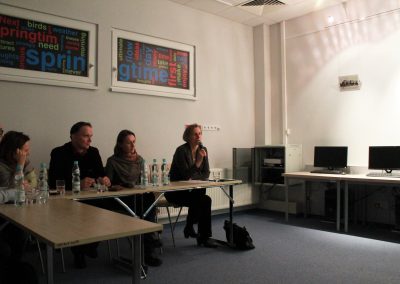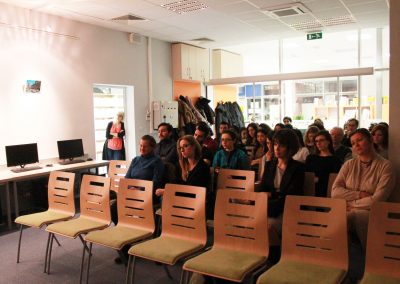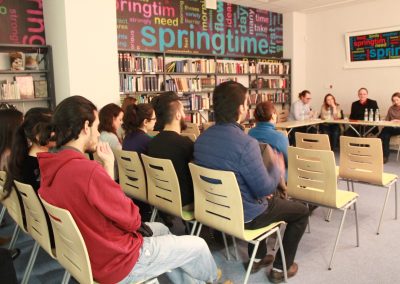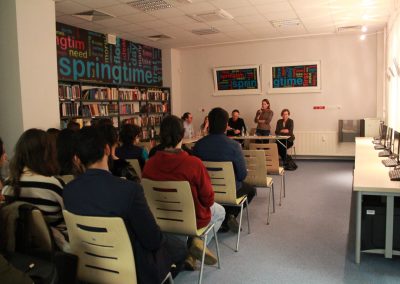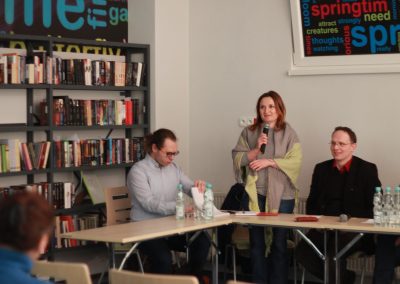On Wednesday we met in the Municipal Library Fil. 4 to participate in the debate entitled Gender ideology(ies): Man and woman – different by nature, inequal by society? We tried to find the answer to this question with our four guests: sociologists Borys Cymbrowski and Anna Czerner, philologist Katarzyna Molek-Kozakowska and biologist Elżbieta Pogoda.
We were aware that for most people the term gender is unfamiliar or even unfriendly, especially when someone is not a philologist or a social researcher, so we started with the basic questions: what gender is, how it exists in our respective fields of studies, and if there exists gender ideology. We can say that gender in general is about social consequences of being men, women or the others, because in the opinion of Elżbieta Pogoda even from a biological point of view there are more than only two sexes. And there is no evidence that one sex has an advantage over another.
In Polish media we encounter some false beliefs about the meaning of the word “gender”. But as Borys Cymbrowski mentioned it is a problem of confusion of nature with culture, because in the Polish language we have only one word (płeć) for gender and for sex. So some commentators confuse biological meaning with the cultural one. They accuse gender scholars of promoting a dangerous ideology which tries to convince people to choose their sex. As Anna Czerner said, the truth is that in the social sciences gender was a neutral category to analyse the relations between people in society, but unfortunately some institutions and politicians took one of the least popular topics in gender studies and used it as a basis to create and apply gender ideology as a political tool.
After that we focused mostly on language aspects within gender issues. Katarzyna Molek-Kozakowska indicated that for her it was easier to introduce herself in English than in Polish, because in Polish most names of academic professions have only a masculine gender, or even if it has a female gender, masculine forms sound more serious and more prestigious. But language is not a constant phenomenon – it is changing all the time. Twenty years ago we considered some female forms of words as strange, but today we take them for granted. We concluded that it is important to include more women-related forms to language, and it is one of the main catalysts of social changes in the public sphere.
We are really glad we could discuss it with you and with the citizens of Opole. We would like to thank you all for your presence and participation, and we hope to see you soon during another discussion. The aim of the whole debate was to clarify a little the problem of gender, but two hours is a short time when you are discussing such an important and complicated topic – so we treat this meeting only as a start. The debate is still open.
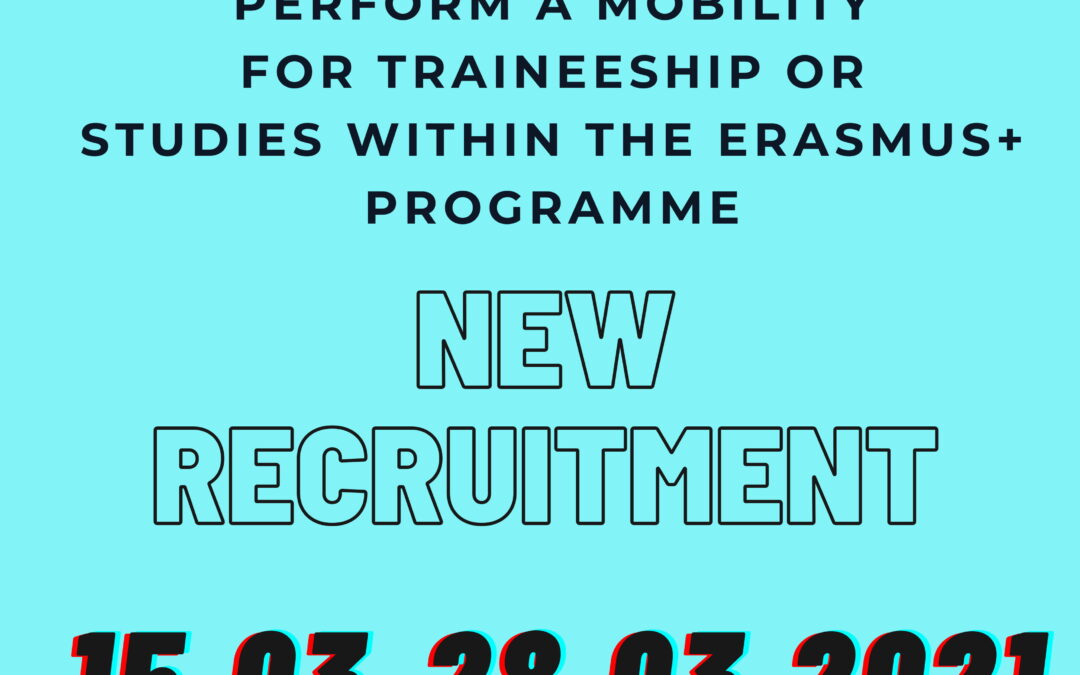
New recruitment for mobilities for studies and traineeships within the Erasmus+ Programme
Dear Students, New recruitment for mobilities for study and traineeship within the framework of the Erasmus + Program during the academic year 2021/2022 starts now. The recruitment will last from 15.03.2021 to 28.03.2021 Every regular student of the University of...

UO Psychological and Therapeutic Support Center
Dear Students, We are very pleased to inform you about opening of UO Psychological and Therapeutic Support Center. The support center started operating on February 15 this year, and it’s goal is to provide students and employees of the University of Opole...
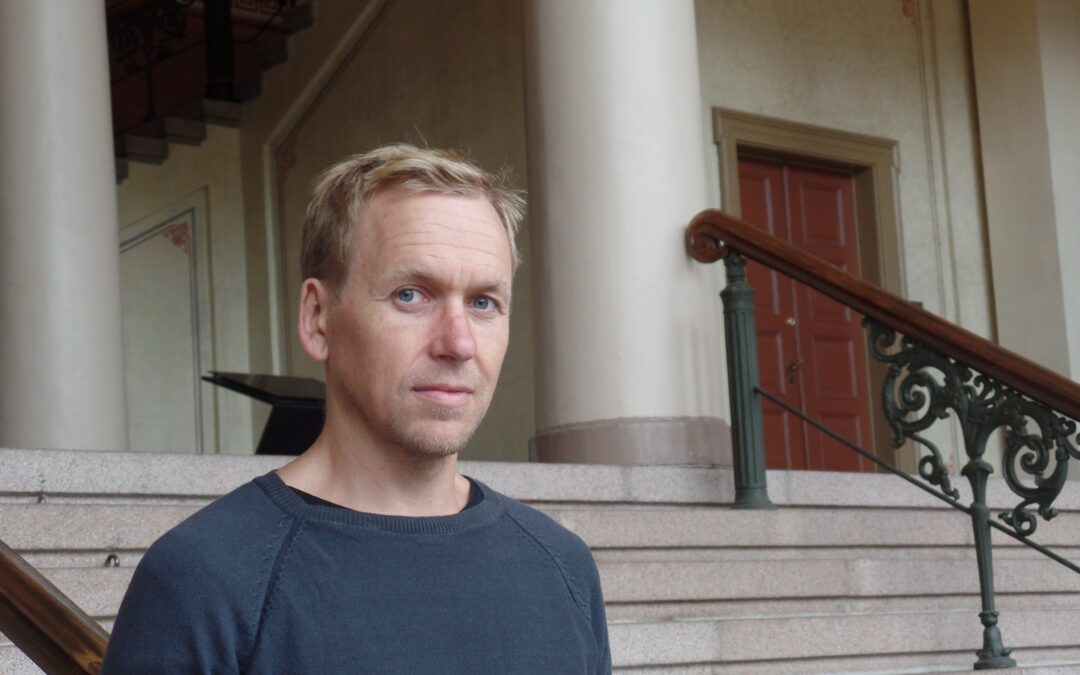
Prof. Sveinung Sandberg – online seminar
Polish Sociological Association, Opole branch and the Interdisciplinary Lab for Social Space and Art, UO invite to an online seminar with Prof. Sveinung Sandberg of the University of Oslo entitled: Narrative analysis of crime and deviance The event is scheduled for...
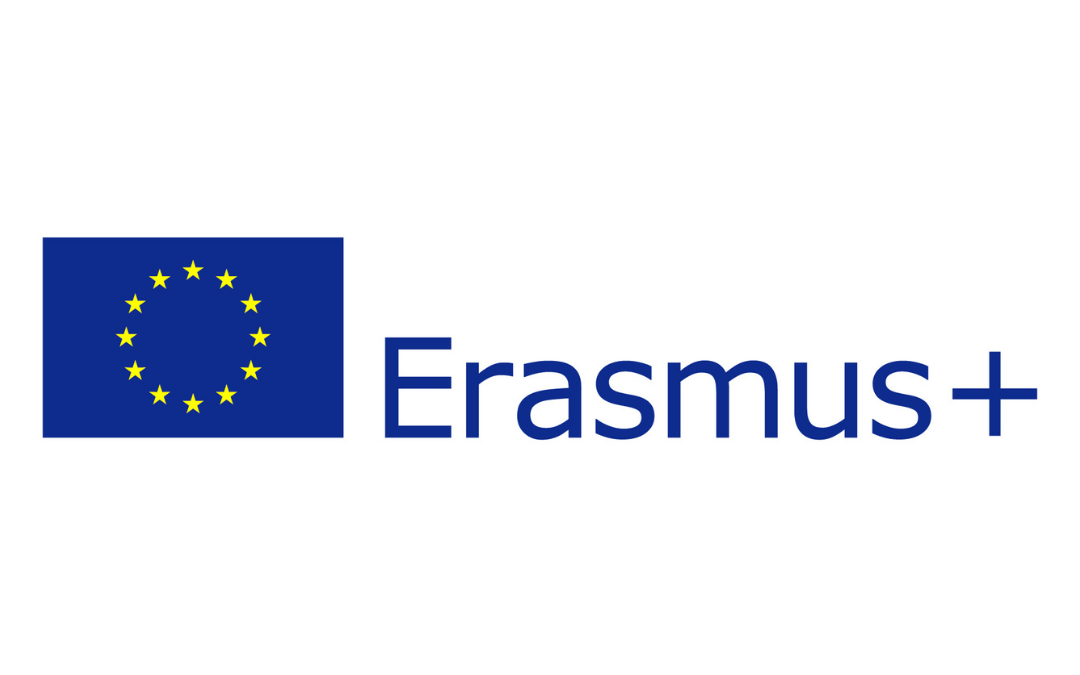
Erasmus+: mobilności STA i STT dla pracowników
Szanowni Państwo, Pandemia koronawirusa znacznie utrudniła nam realizację mobilności międzynarodowych w ramach Programu Erasmus+. Ograniczenia w podróżowaniu oraz przejście większości uczelni europejskich na kształcenie zdalne utrudniło zaplanowanie wyjazdów...
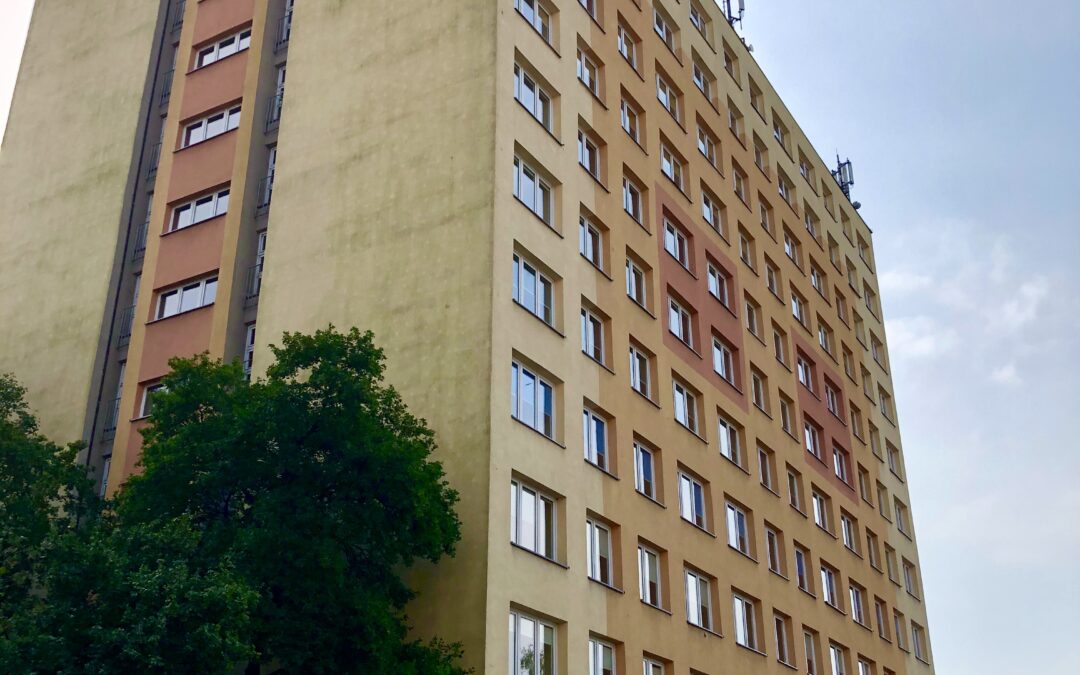
Ogłoszenie/ Announcement
Due to safety reasons we kindly ask you to visit the Erasmus+ Office individually (not in groups). Visits will be possible by prior arrangement erasmus@uni.opole.pl +48 77 452 7353 Z uwagi na względy bezpieczeństwa bardzo prosimy o odwiedzanie Biura Erasmus+...
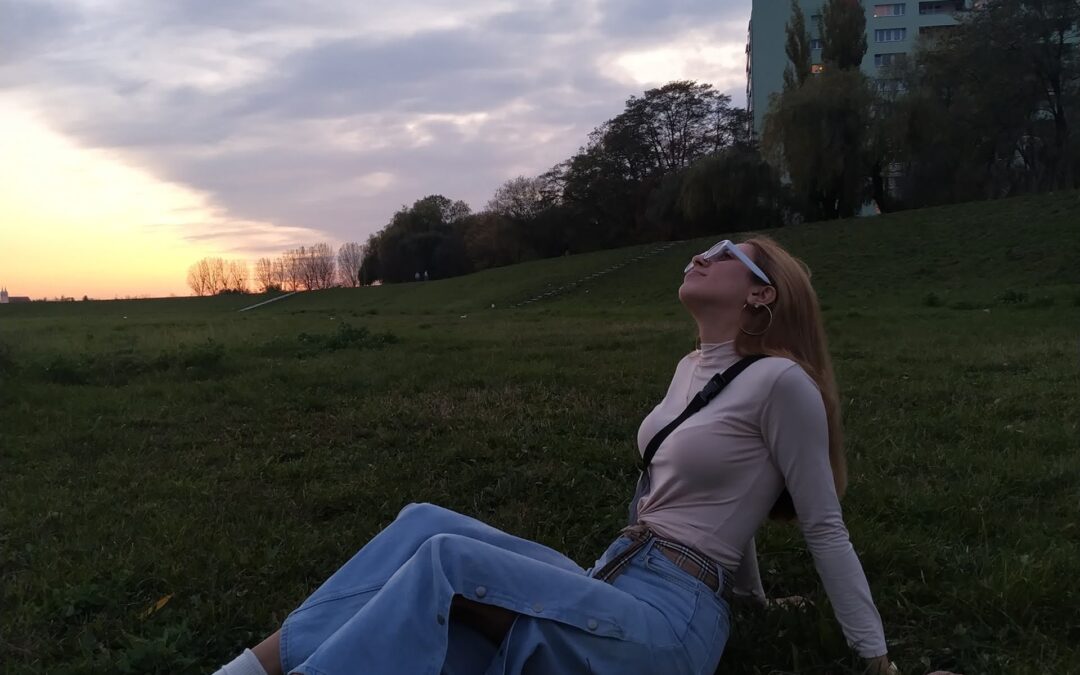
Story of Nikki
Hello! Today our guest is Nikki from Azerbaijan. Nikki was studying at the University of Opole for a year. Today she's goingto tell us about her experience in studying and living in Poland 🙂 Hello Nikki! In the beginning could you introduce yourself to our readers?...
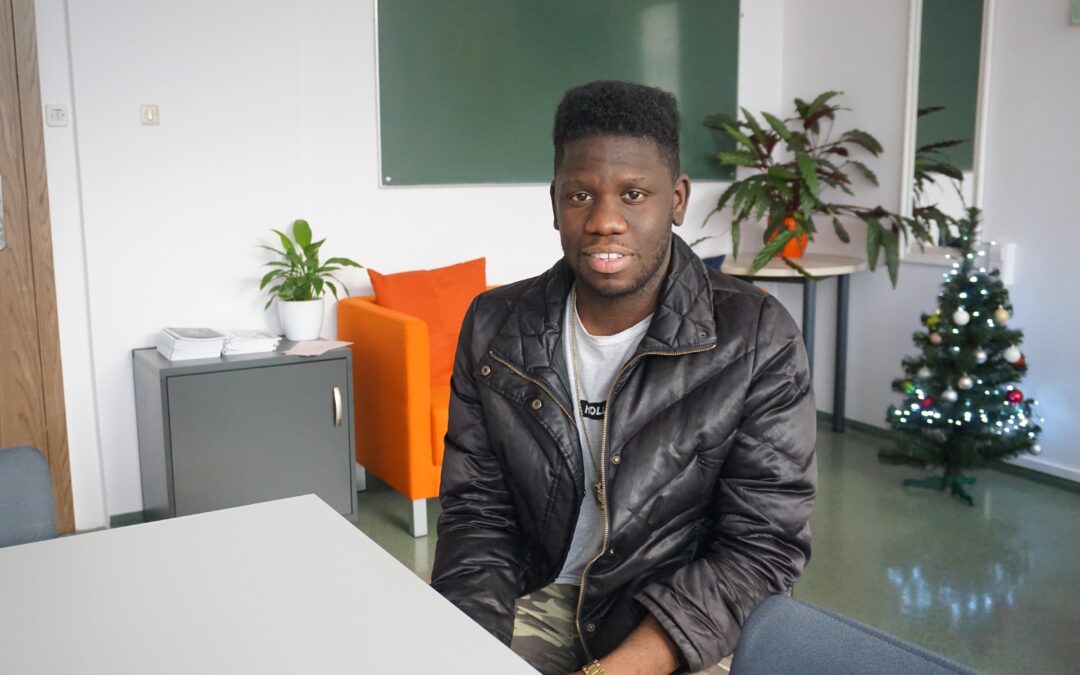
Anthonio from Jamaica
Anthonio Dixon - first-year student at International Bussines BA program Meet our next quest - Anthonio, who came to Opole from Jamaica. Why did you decide to come to Poland and how did you find out about university? Anthonio: I spent a couple of months...
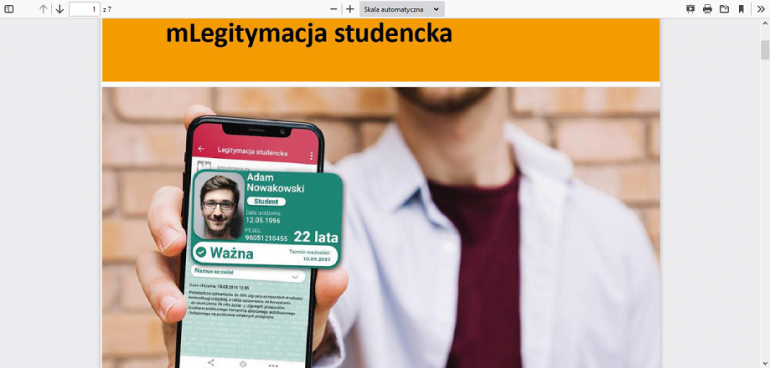
Mobile student ID
Mobile student ID – „mLegitymacja" is available for our students from now on. The IT centre of the University of Opole informs that Mobile student ID is accessible both in USOSWeb and in Mobile USOS (in the newest upgrade of mUSOS). If you are using mUSOS but can't...
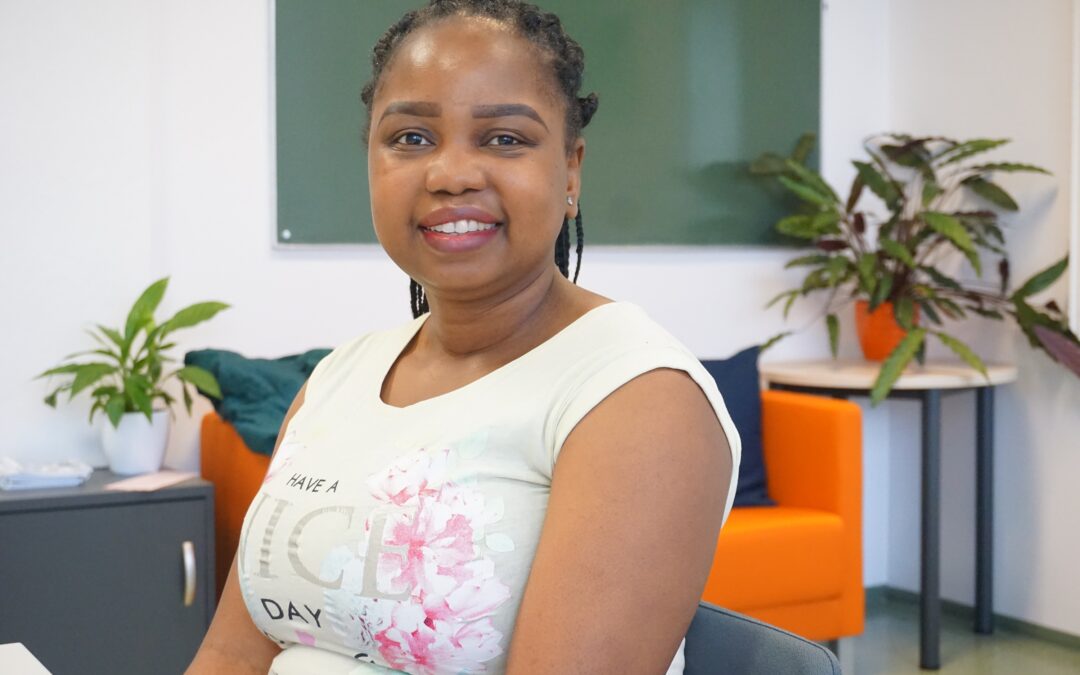
Abiola from Nigeria
Abiola Georgina Adebayo, student of Economics: concentration in Sustainable Development, MA degree In the past two years, our University is welcoming a growing number of students from Nigeria. One of them is Abiola Adebayo who came to the University of Opole to...
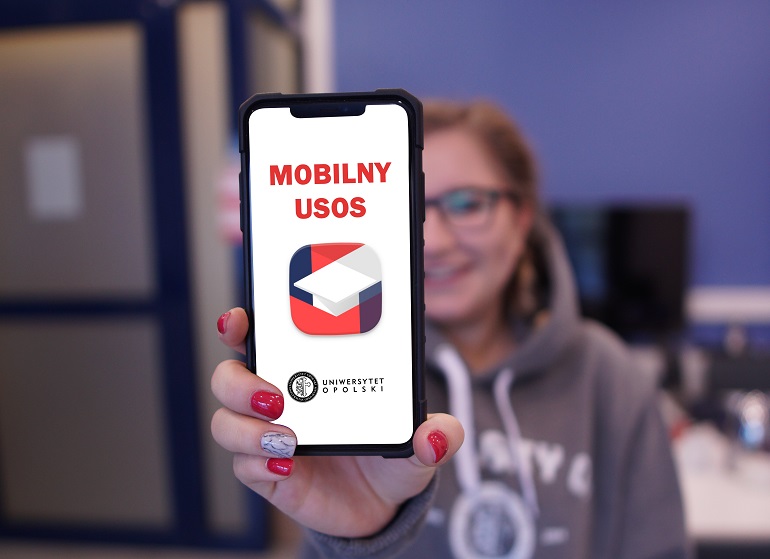
Mobile USOS
Class timetables, grades, questionnaires, documents, the newest information, search engine – you can have these and many other functions in your pocket! Mobile USOS application launches on 25 of January. Just log in and use it!Mobile USOS is the only mobile...
